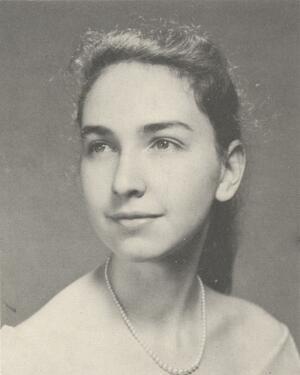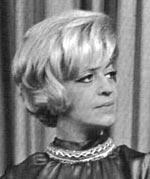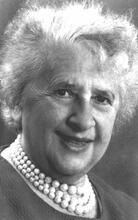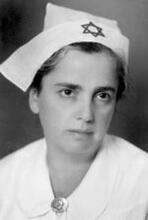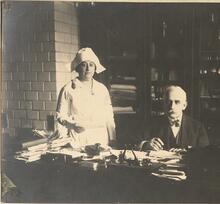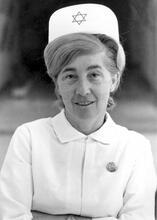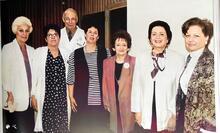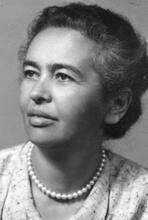Ora Mendelsohn Rosen
Ora Mendelsohn Rosen’s brilliant biochemical research fundamentally shaped our understanding of diabetes and cancer. In 1966, after earning her medical degree from Columbia University and doing post-graduate work at New York University, Rosen joined the faculty of the Albert Einstein College of Medicine. She soon became chair of the Albert Einstein molecular pharmacology department, eventually becoming the director of their endocrinology division. In 1984, Rosen joined the faculty of Memorial Sloan-Kettering Cancer Center, where she cloned the gene for the human insulin receptor. Vital for understanding everything from how insulin fails to reach the cells of a diabetic to how hormones tell cancer cells to replicate, Rosen’s discoveries garnered her many awards and honors. Sadly, Rosen died of breast cancer herself in 1990.
A brilliant research physician, Ora Mendelsohn Rosen tragically died of cancer, the disease whose processes her researches in cell biology had helped to explain. A leading investigator of how hormones control the growth of cells, Rosen held the Abby Rockefeller Mauz Chair of Experimental Therapeutics at Memorial Sloan-Kettering Cancer Center in New York City. Although her initial research involved insulin, not cancer cells, the implications of her discoveries reverberated throughout biochemical and genetic research, including cancer research. Rosen’s work allowed scientists to understand for the first time how insulin interacts with a cell and opened the way for detailed investigation of how an insulin receptor molecule transmits signals from the cell’s surface to its interior. The topic of communication within a cell is significant not just for diabetes research but also for understanding cancer.
Early life: Judaism and family in New York
Born and bred in New York, Ora was the first child and only daughter of Isaac and Fanny (Soier) Mendelsohn. Her parents, both born in Russia, met and married in Palestine in 1925. Several years later, they came to the United States. Isaac Mendelsohn became a professor of Semitic languages at Columbia University; Fanny Mendelsohn specialized in remedial reading.
Ora Rosen was born on October 26, 1935, and grew up on Manhattan’s Upper West Side in an intellectual household. Her parents had high expectations for her and her younger brother, Ezra, who later became a professor at the Hebrew University of Jerusalem. The Mendelsohns were Zionists and immersed in Jewish culture. Ora joined the left-wing Zionist youth movement Ha-Shomer ha-Za’ir as a teenager, but did not receive a formal Jewish education.
Advances in Rosen’s medical career
She attended public schools and then entered Barnard College, majoring in biology as a premed student. In 1956, she graduated and married Samuel Rosen, a physician who later became a dean at the Albert Einstein College of Medicine in New York. The Rosens had two sons, Isaac and Gideon. Despite her decision, typical of young women in the 1950s, to marry after graduation and have children, Rosen atypically did not let marriage or children deflect her from pursuing a career in medical research. In 1960, she received her medical degree from Columbia University’s College of Physicians and Surgeons. After additional study of cell biology and biochemistry at New York University and the Albert Einstein College of Medicine, she joined the latter institution in 1966 as an assistant professor of medicine. Just a year later, she was made an associate professor. In 1975, her promotion to full professor signaled the importance of her research. In 1976, she was appointed professor and chair of the department of molecular pharmacology, and in 1977, she became director of the division of endocrinology.
After joining the faculty of Memorial Sloan-Kettering in 1984, Rosen, working with researchers at Genentech, cloned the gene for the human insulin receptor in 1985. The insulin receptor is the cell-surface molecule to which the hormone insulin binds. The receptor, in effect, turns the key to transmit signals into a cell, thus activating information inside the cell. Prior to Rosen’s research, scientists did not know how insulin got into the cell. Her findings led to further inquiry into the role of insulin in normal cell function as well as in such cell disorders as diabetes.
Awards, honors, and personal tragedy
In recognition of her work, Rosen received awards from the American Medical Women’s Association and the Albert Einstein College of Medicine. In 1989, she was elected a member of the National Academy of Sciences, a rare honor for a woman.
Personal tragedy interrupted her brilliant career, when her husband, Samuel, died in the early 1980s. She subsequently married Jerard Hurwitz, an American Cancer Society research professor working at Sloan-Kettering in DNA replication.
On May 30, 1990, on the Jewish holiday of Lit. "weeks." A one-day festival (two days outside Israel) held on the 6th day of the Hebrew month of Sivan (50 days, or 7 complete weeks, from the first day of Passover) to commemorate the Giving of the Torah on Mount Sinai; Pentecost; "Festival of the First Fruits"; "Festival of the Giving of the Torah"; Azeret (solemn assembly).Shavuot, Ora Mendelsohn Rosen, age fifty-four, died of breast cancer at her home on Manhattan’s Upper East Side.
American Men and Women of Science. 16th ed. (1986).
Mendelsohn, Ezra. Interview by author, November 29, 1996.
Obituary. NYTimes, June 1, 1990.

